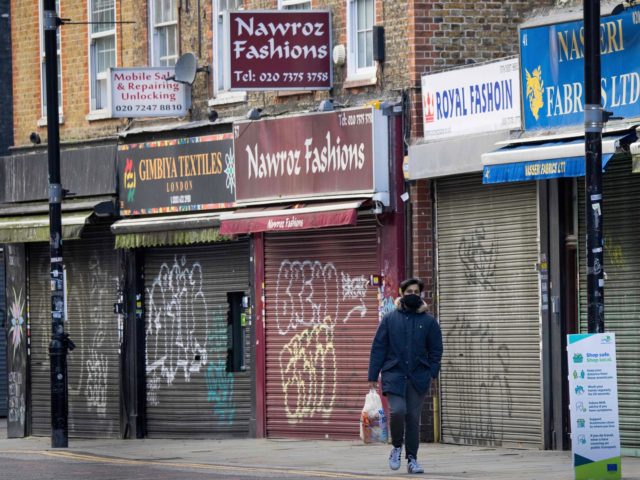The United Kingdom’s economic emergency is “just beginning”, according to Chancellor of the Exchequer Rishi Sunak, who predicted that unemployment will rise by over one million in the coming months.
According to the latest statistics, there are currently 1.62 million unemployed people in the UK, up by over 300,000 from 2019. The Chancellor said that despite record peace-time spending, the government is expecting unemployment to hit 2.6 million by the middle of next year — the highest rate since 2012.
Mr Sunak said in the House of Commons that the British economy is set for a decline of 11.3 per cent this year, which he said was “the largest fall in output for more than 300 years”.
The Office for Budget Responsibility (OBR) said that economic growth is not expected to return to pre-pandemic levels until 2022, meaning that the British economy will have effectively lost three years of growth, The Times reported.
“Even with growth returning, our economic output is not expected to return to pre-crisis levels until the fourth quarter of 2022. And the economic damage is likely to be lasting,” Sunak said.
The OBR said that the government will be forced to raise taxes and cut spending by between £21 billion and £46 billion by 2025 to avoid the debt accumulated during the pandemic spiralling out of control.
The independent budget watchdog went on to say that housing prices are expected to fall by over 8 per cent next year, with prices not expected to recover until 2022.
‘Give British Workers a Chance!’ Think Tank Bashes Plan to Import Millions of Workers During Economic Crisis https://t.co/mlrb6mZRR9
— Breitbart London (@BreitbartLondon) October 1, 2020
Mr Sunak said that the government is expected to borrow £394 billion this year, the highest level “in our peacetime history” he said. The Chancellor also revealed that the government would spend at least £280 billion this year in order “to get our country through coronavirus”.
The Chancellor did announce a spending freeze for public sector employee salaries, with exceptions carved out for healthcare workers and the lowest-paid.
He went on to confirm that the government would temporarily cut foreign aid spending from 0.7 per cent of GDP to 0.5 per cent, saving the government some £4 billion.
Despite concerns of ballooning debt, Sunak went on to announce that the government spending spree would continue, including increases in defence spending, an additional £3 billion on Britain’s socialised healthcare system, and a £4.6 billion package to assist the unemployed get back to work.
According to the economic think tank, the Resolution Foundation, £12,000 per British household has been spent on the government’s coronavirus response.
UK Facing Massive Tax Hikes Following COVID Spending Spree, Warns Think Tank, As Unemployment Rises https://t.co/mVzCnM3Zlf
— Breitbart London (@BreitbartLondon) October 13, 2020
On Monday, Prime Minister Boris Johnson announced that following the end of the second national lockdown on December 2nd, the government will re-implement the regional tier system restrictions, which is expected to be more draconian than previous measures.
The former leader of the Conservative Party, Sir Iain Duncan Smith, said that the government’s insistence on continuing coronavirus lockdown measures will only cause more economic damage, saying the restrictions “will force vast numbers of firms out of business and cast countless people out of work”.
“Given that the economy is in free fall, borrowing is rising like a rocket and tens of thousands of people face major delays for non-Covid health treatment, I wonder if those advising the Government have any concept of the devastating consequences of such a proposal,” he said.
Watch: The Government Killed My Business Says Anti-Lockdown Protester https://t.co/avAUwBTGvK
— Breitbart London (@BreitbartLondon) October 27, 2020
Follow Kurt Zindulka on Twitter here: @KurtZindulka

COMMENTS
Please let us know if you're having issues with commenting.